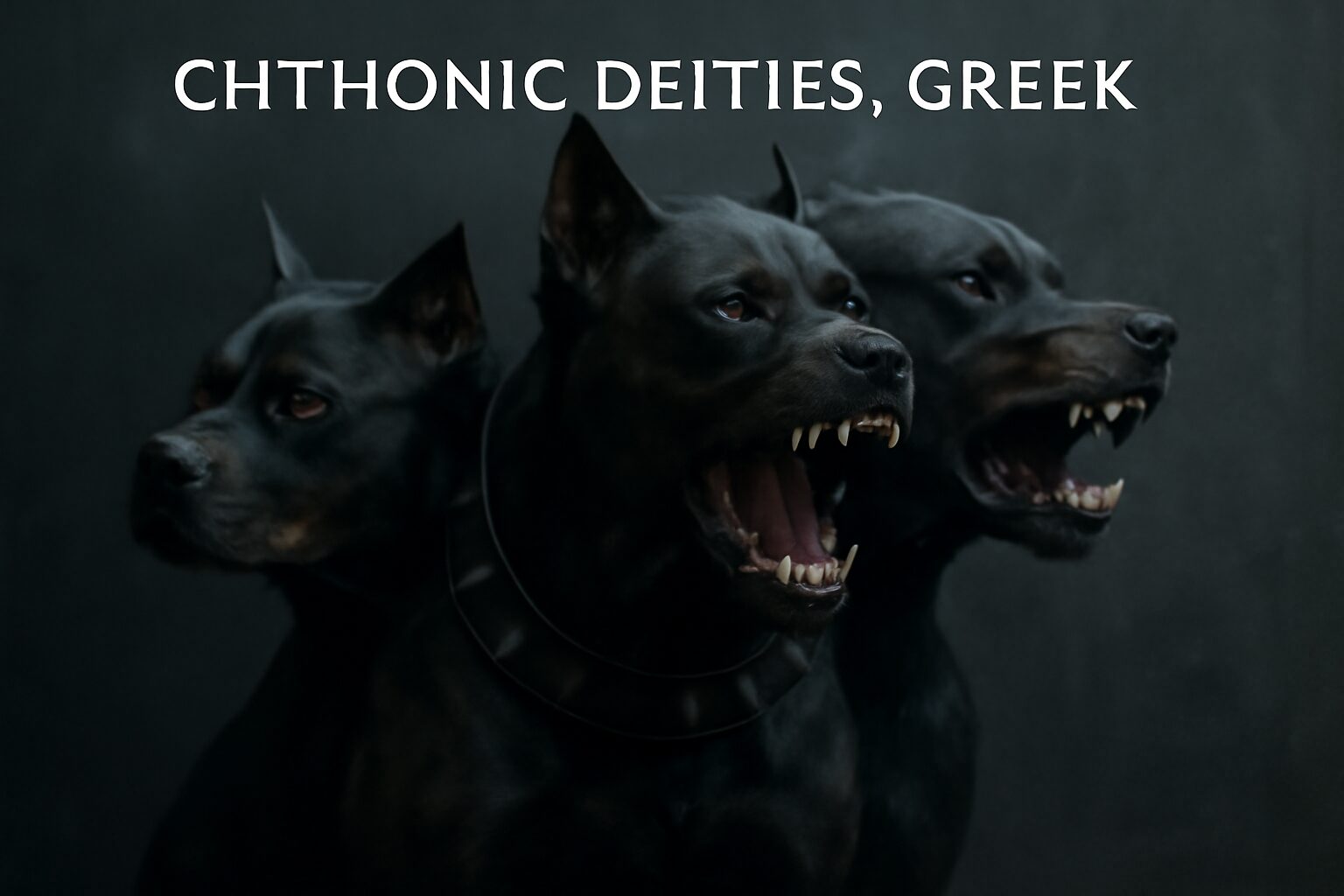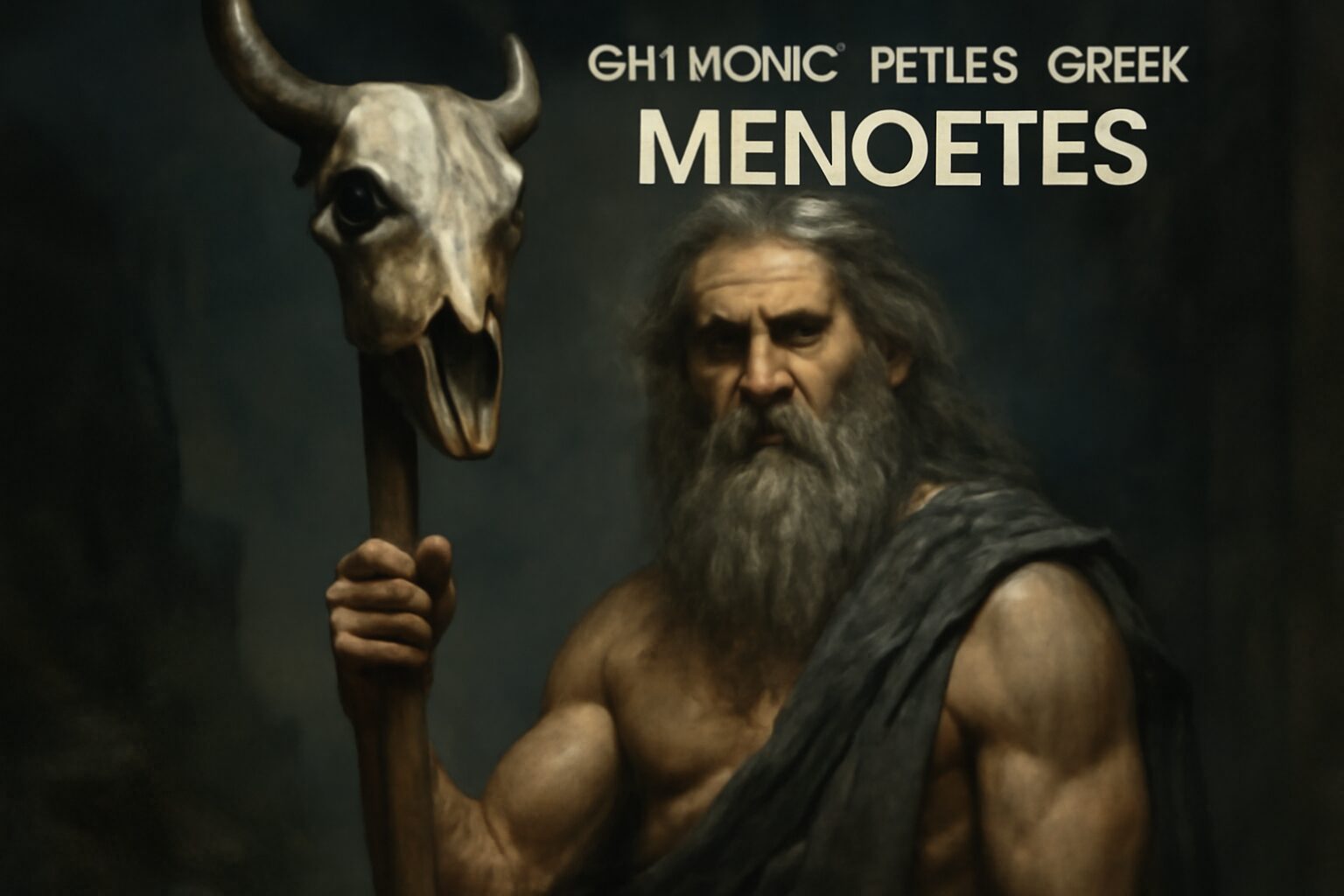Hades: The Enigmatic Ruler of the Underworld
In Greek mythology, Hades is the formidable god of the underworld, a figure both feared and respected. As one of the three sons of the Titans Cronus and Rhea, he drew the shortest lot during the division of the cosmos, earning dominion over the dead while his brothers Zeus and Poseidon ruled the sky and sea, respectively. Despite his ominous reputation, Hades was not inherently evil—he was a stern but just ruler who maintained order in his shadowy realm.
Domain and Powers
Hades presided over the underworld, a vast and complex realm divided into regions like Elysium (a paradise for heroes), Asphodel Meadows (for ordinary souls), and Tartarus (a prison for the wicked). His most iconic symbol was the Helm of Darkness, a magical cap that rendered him invisible, allowing him to move unseen among mortals and gods alike. He also wielded a two-pronged scepter or bident, symbolizing his authority over the dead.
Unlike death deities in other mythologies, Hades did not decide mortal fates—that role belonged to the Moirai (Fates). Instead, he ensured the dead remained in his domain, rarely permitting escape. His most famous myth involves the abduction of Persephone, which explains the cycle of seasons—her time in the underworld bringing winter, and her return heralding spring.
Relationships and Myths
Hades was married to Persephone, daughter of Demeter, whom he famously abducted with Zeus’s tacit approval. Though the act was violent, their relationship evolved into one of mutual respect, with Persephone eventually sharing power as queen of the underworld. Hades had few offspring, the most notable being Zagreus (associated with Orphic mysteries) and Macaria (goddess of blessed death).
Despite his fearsome reputation, Hades rarely interfered in the affairs of Olympus. He was known for his stern impartiality—once souls entered his realm, they seldom left. Exceptions, like Orpheus’s failed attempt to retrieve Eurydice, only reinforced his inflexible nature.
Significance in Greek Mythology
Hades represented the inevitability of death and the balance between life and the afterlife. Unlike chaotic death gods in other cultures, he embodied order, ensuring the dead remained separate from the living. Temples dedicated to him were rare—mortals feared invoking his name, often referring to him euphemistically as Plouton ("the wealthy one"), acknowledging the earth’s mineral riches under his domain.
Though often conflated with malevolent figures, Hades was a neutral force in Greek belief, a reminder of mortality’s inescapable nature. His myths underscored themes of justice, cycles of life and death, and the consequences of defying divine law—a legacy that endures in modern retellings of Greek mythology.
Alternative Names for Hades
God Name: Pluto (Roman)
The Roman equivalent of Hades, Pluto is the god of the underworld. The name Pluto comes from the Greek word 'Plouton', meaning 'wealth', reflecting the riches that come from the earth.
God Name: Plouton (Greek)
An alternative Greek name for Hades, meaning 'wealth-giver', emphasizing his role as a god of the earth's riches and fertility, not just the underworld.
God Name: Aidoneus (Greek)
Another name for Hades, derived from 'Aides', meaning 'the unseen one'. It underscores his association with the invisible realm of the dead.
God Name: Dis Pater (Greek)
A Latinized version of Hades, used in Roman mythology. 'Dis Pater' translates to 'Rich Father', similar to Pluto, highlighting his connection to earthly wealth and the underworld.
God Name: Theos Khthonios (Greek)
Meaning 'the chthonic god', this name refers to Hades' role as a deity of the earth and the underworld, distinguishing him from the Olympian gods.
God Name: Polydegmon (Greek)
Translating to 'receiver of many', this epithet for Hades reflects his role as the god who welcomes all the dead into his realm.
Tales about Hades
Hades and Persephone: The Queen of the Underworld
In the shadowed realm of the dead, Hades ruled with solemn authority, yet his kingdom lacked a queen. From his obsidian throne, he watched the world above and grew captivated by Persephone, daughter of Demeter, whose laughter was like spring itself. One day, as she gathered flowers in a sun-drenched meadow, Hades emerged from a chasm in the earth, driving a chariot of darkened gold. He swept Persephone into his arms and carried her to his underworld domain, where pomegranate trees grew in gardens of ash.
A Division of Seasons
Demeter’s grief plunged the world into barren winter until Zeus intervened. A compromise was struck: for each pomegranate seed Persephone had eaten in the Underworld, she would spend one month of the year with Hades. Thus arose the seasons—spring and summer when she walks the earth, autumn and winter when she returns as Queen beside Hades, binding life and death in an eternal cycle.
Hades and Hecate: Guardians of the Crossroads
When Persephone vanished, it was Hecate, torch-bearing goddess of magic and crossroads, who heard her cries echoing from beneath the earth. Hecate approached Hades not as an enemy, but as a keeper of hidden truths. She offered her wisdom, guiding Demeter to the truth of Persephone’s fate and later standing as witness to the pact that divided the year.
An Eternal Alliance
In gratitude, Hades granted Hecate unparalleled influence in his realm. She became a guardian of its gates and a guide to souls lost between worlds. To this day, where three roads meet, Hecate is honored, and in the deepest shadows of the Underworld, her torches burn with Hades’ blessing—a testament to their alliance, woven of mystery and mutual respect.
Frequently Asked Questions
Who is Hades in Greek mythology?
Hades is the god of the underworld in Greek mythology. He is one of the three major gods, alongside his brothers Zeus (sky) and Poseidon (sea). Hades rules over the dead and the afterlife, and his realm is often simply called 'Hades' after him.
What are Chthonic deities in Greek mythology?
Chthonic deities are gods or spirits associated with the earth, the underworld, or the afterlife in Greek mythology. The term 'chthonic' comes from the Greek word 'chthon,' meaning 'earth.' These deities, like Hades, Persephone, and Hecate, are often connected to death, fertility, and hidden knowledge.
Why is Hades important in Greek mythology?
Hades is important because he represents the inevitability of death and the balance of the cosmos. As ruler of the underworld, he maintains order among the dead and ensures the natural cycle of life and death continues. His role highlights ancient Greek beliefs about the afterlife and morality.
How does Hades differ from other Greek gods?
Unlike other Greek gods who live on Mount Olympus, Hades resides in the underworld and rarely interacts with the world of the living. He is often portrayed as stern but fair, focusing on his duties rather than the dramas of other gods. His realm is separate, symbolizing the finality of death.
What can we learn from stories about Hades and Chthonic deities today?
These stories teach us about ancient Greek views on death, justice, and the unseen forces of nature. They remind us of the importance of balance, respect for the dead, and the mysteries of life. Modern interpretations often explore themes of power, resilience, and transformation inspired by these myths.















